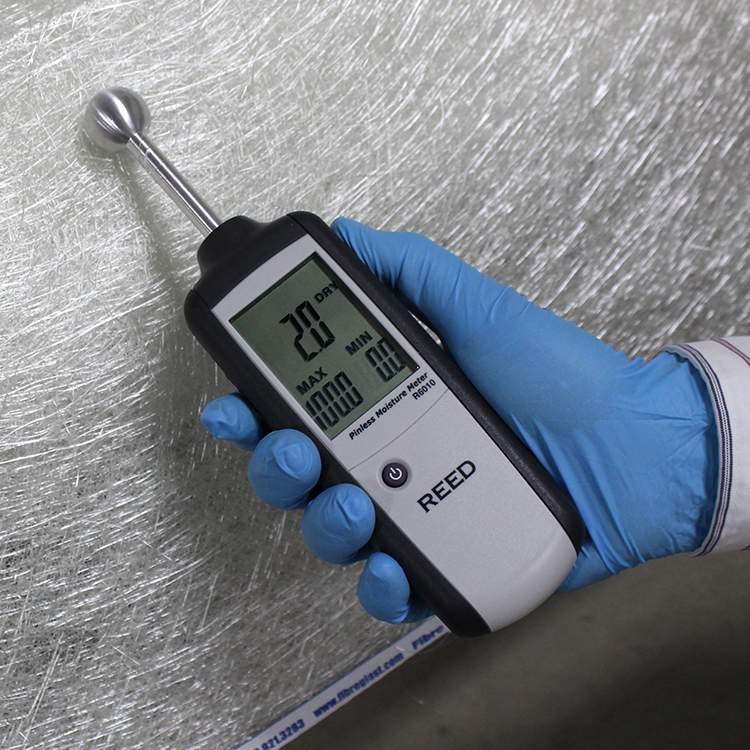Why Every House Owner Needs a Moisture Meter: Trick Advantages and Features
Why Every House Owner Needs a Moisture Meter: Trick Advantages and Features
Blog Article
The Ultimate Overview to Dampness Meters: A Comprehensive Introduction and Just How They Can Save You Money
Dampness meters offer as vital devices in identifying and monitoring moisture content in materials, assisting in preventing costly damages and guaranteeing the top quality of items. Understanding the nuances of different types of wetness meters, their applications, and the potential cost-saving benefits they offer can be a game-changer for professionals and companies alike.
Types of Moisture Meters
Different sorts of moisture meters are available for different applications in different markets. One usual type is the pin-type wetness meter, which gauges the electrical resistance between 2 pins put right into a material. This kind appropriates for timber, drywall, and other building materials. Pinless dampness meters, on the other hand, usage electro-magnetic sensor plates to scan a larger location without creating damage to the product's surface. Moisture Meter. These meters are suitable for promptly examining dampness degrees in huge areas such as floorings and wall surfaces.

In addition, there are additionally specialized wetness meters made for particular products like soil, grain, or hay. These meters provide precise wetness analyses customized to the one-of-a-kind residential properties of the product being checked. Infrared dampness meters gauge the thermal residential or commercial properties of a material to establish its wetness web content non-invasively, making them beneficial for applications where pin or pinless meters may not be suitable. Recognizing the different kinds of dampness meters readily available can aid markets pick the most ideal tool for their certain dampness measurement demands.

Benefits of Using Wetness Meters
Moisture meters use invaluable advantages in accurately analyzing and monitoring dampness levels in diverse materials and atmospheres (Moisture Meter). One of the main benefits of using wetness meters is the avoidance of prospective damage triggered by excess wetness. By spotting and resolving high dampness levels early on, moisture meters help to avoid mold development, rot, and architectural damages in structures, conserving both money and time on repairs. Additionally, wetness meters help in making certain the high quality of materials throughout construction or production procedures. By properly determining moisture material, these tools aid maintain the integrity of wood, drywall, concrete, and various other materials, reducing the risk of flaws or failings.
Furthermore, using moisture meters can lead to raised energy effectiveness. In farming setups, moisture meters play an essential role in optimizing crop returns by allowing farmers to check soil moisture degrees and make educated watering decisions.
Exactly How to Select the Right Moisture Meter
Choosing the suitable wetness meter involves considering key variables such as material compatibility, measurement range, and calibration accuracy. When picking a wetness meter, it's essential to make certain that the meter is appropriate for the details material you will be screening. Various products have differing electrical homes that can impact dampness readings, so selecting a meter designed for your material is essential for exact results. Additionally, take into consideration the measurement range of the moisture meter. Make sure that the meter can discover moisture degrees within the variety needed for your applications. Calibration precision is an additional crucial factor to maintain in mind. Choose for a wetness meter with reliable calibration to ensure regular and exact analyses. Some meters may call for routine calibration modifications, so comprehending the calibration process is essential. By thoroughly examining these aspects, you can choose a wetness meter that fulfills your demands and provides exact dampness dimensions for your tasks.
Correct Strategies for Wetness Meter Use

Cost Savings Via Wetness Meter Applications
How can the critical utilization of moisture meters lead to substantial price financial savings click for more throughout various markets? In the agriculture market, wetness meters help in determining the optimal time for harvesting plants, protecting against over-drying or excess dampness that can influence the last item's top quality.
Likewise, in building and construction, moisture meters help protect against costly problems by detecting moisture levels in building materials, such as timber or concrete, which can cause structural issues if not dealt with without delay. By determining trouble locations beforehand, specialists can take rehabilitative steps to prevent extensive repairs or substitutes, eventually conserving time and cash.
Furthermore, in the food processing market, moisture meters are necessary for keeping an eye on product top quality and making sure compliance with safety policies. By accurately measuring wetness content in food products, makers can stop wasting, maintain freshness, and lower waste, causing substantial price financial savings. Generally, the tactical application of moisture meters is a valuable financial investment that can bring about considerable cost decreases and improved efficiency throughout numerous industries.
Conclusion
To conclude, dampness meters are useful tools for spotting and determining wetness levels in numerous materials. By making use of the straight from the source right moisture meter and following correct methods, users can successfully stop expensive problems triggered by excess dampness. Spending in a top quality moisture meter can result in substantial price financial savings in the future by recognizing potential issues early on and enabling prompt remediation. Inevitably, dampness meters are important instruments for maintaining the stability and longevity of materials and structures.
Moisture meters offer as important devices in discovering and monitoring moisture web content in materials, assisting in preventing costly problems and making sure the quality of products. Infrared moisture meters gauge the thermal properties of a product to establish its dampness material non-invasively, making them helpful for applications where pin or pinless meters might not be appropriate.Wetness meters offer indispensable benefits in properly monitoring and examining wetness degrees in diverse materials and environments. In farming setups, dampness meters play an important duty in enhancing plant returns by making it possible for farmers to monitor soil dampness levels and make educated watering decisions.In final thought, dampness meters are useful tools for he said gauging and identifying dampness degrees in different materials.
Report this page